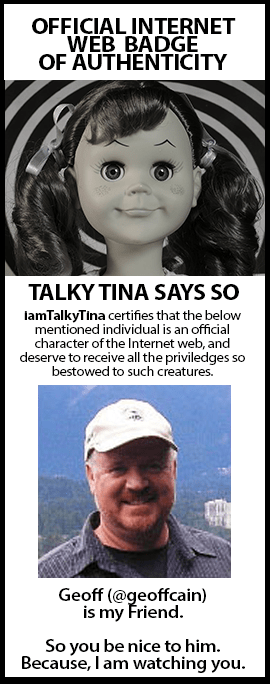I am still working on the Annotating Engelbart project. Gardner gave us a “syllabus,” in a way, that had a timeline and what we were going to read together, and in my usual fashion, I have taken off from there and am now wandering the hinterlands of poetry, programming, and consciousness. I think I lost a weekend or two filled with Engelbart, reading annotations, reading other documents of the time, blogging and tweeting, and watching car commercials from 1962 in Youtube (you know how that can happen).
I got a lot out of this week’s featured annotator, Claudia Ceraso, an ESL teacher from Argentina who has an interesting blog to check out. She has been navigating this space and blogging at least since 2006 AND she has an education background which brings a much needed and refreshing perspective to something, that on the surface, can seem pretty technical (Augmenting Human Intellect).
I appreciated Claudia’s perspective on language. We need people whose ears and minds are tuned into language to look at work like this. I was in college studying English at a time and place that thought that Chomsky was central to understanding language and thinking. There have been a number of theories about language out since then but nothing that answer the questions he was asking. It makes sense to that most everything in nature has some kind in pattern baked into it (physical laws, DNA, etc.), so why not language and thought? All the scientists are really arguing about is how deep the structure goes or where it begins and ends. One of my favorite essays on technology, Codognet’s The Semiotics of the Web, makes the point this way: “the success of the computer as a universal information-processing machine lies essentially in the fact that there exists a universal language in which many different kinds of information can be encoded and that this language can be mechanized. This would concretize the well-known dream of Leibniz of a universal language that would be both a lingua characteristica, allowing the ‘’perfect’’ description of knowledge by exhibiting the ‘’real characters’’ of concepts and things, and a calculus ratiocinator, making it possible for the mechanization of reasoning.”
Any way, my point is that getting any real clarity on Engelbart or other technical projects is incomplete without the context – the connections to language, thought, and history that the Humanities can provide. All the things that are wrong with technology comes from technology’s divorce from this context through specialization. For instance, Zuckerberg and Facebook is what happens when techies don’t have to study ethics.
I also appreciated that Gardner was thoughtful enough to invite someone from the other side of the world – again, a refreshing context. We take our easy access to the internet for granted here. I too have found myself thinking of Cortazar, Borges, and semiotics while on this expedition. I think there are literary answers to many technical questions. That is what art is for. So a big thanks to both of you.





I wonder whether thought has a pattern baked into it, as you express it, but language probably does. The proof of its existence could be found in the possibility of translation. Codognet’s quote seems to point to an ideal language, a technological one, which could override the need to translate. Technology as language.
Regards from Buenos Aires, Argentina.